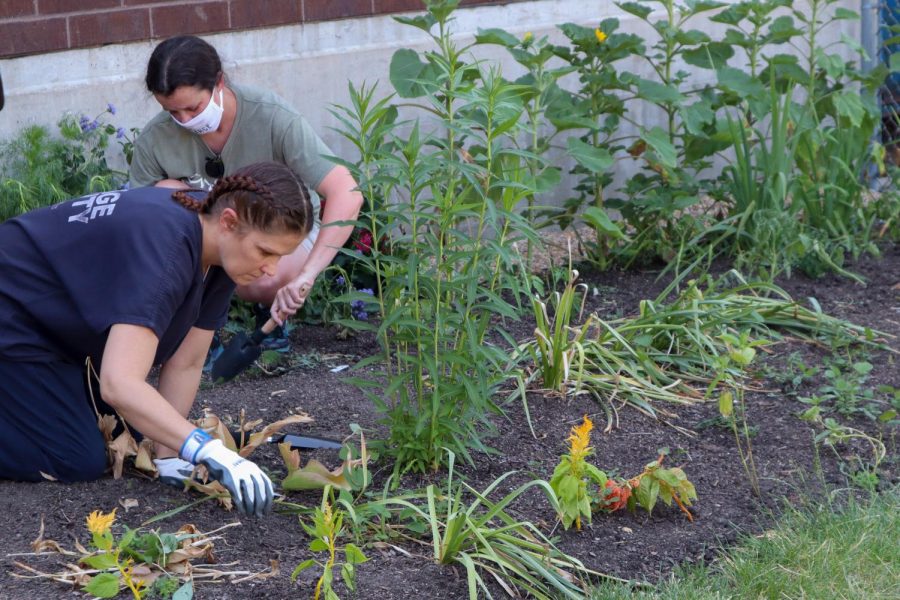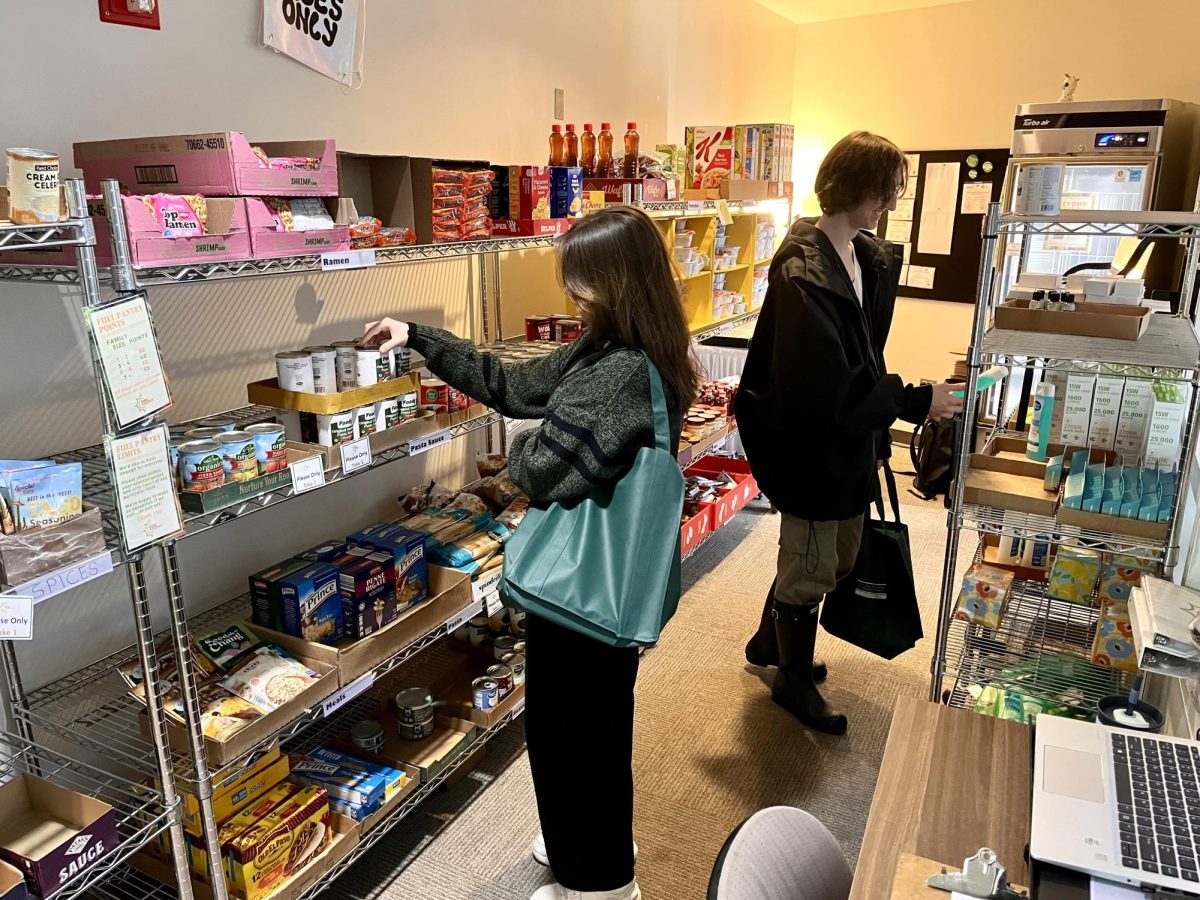COD Offers Horticulture Program With DuPage County Correctional Facility
August 9, 2021
The Video Process: The Courier’s Managing Editor, Nicole Littlefield, reached out to Michael Beary and worked out a time and date to come to the Correctional Facility. When Courier staff got on site, Beary and an officer escorted us through the jail and into the garden. As the inmates did their gardening, Danny Olivares recorded interviews with employees and inmates while Alexia Lukose took pictures. In creating the video that accompanies this story, the reporting team, in consultation with the editing team, paid particular attention to using interviews that did not exploit the situation any particular person at the jail was dealing with.
JUST of DuPage has partnered with COD to offer an eight-week Sustainable Urban Agriculture Program for inmates to receive college credit.
Michael Beary is the Executive Director of JUST of DuPage, which is a not-for-profit organization that works within the DuPage County Correctional Facility. With the help of over 100 volunteers, the organization offers 72 classes to the inmates each week.
“The advantage of our work in jail is when people have hit bottom and they’re ready to make a change,” said Beary. “That’s what we’re here for to help those people.”
Anger management, addiction recovery and other vocational and life skills are some of the courses JUST of DuPage offers. Jeanne Beauchamp counsels the inmates and helps with addictions, job readiness and overall wellness.
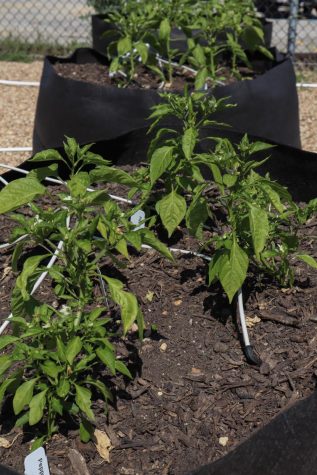
“We see the need, in the corrections facility, for GED and [English Language Acquisition]ELA,” said Beauchamp. “Then, we bring those programs in because the best thing for anybody is to go back into a situation where they are equipped and prepared for their next opportunity in life, professionally and personally.”
In partnership with COD, the jail is offering three college credit hours for the Sustainable Urban Agriculture Program, which has quickly become one of the most popular courses. Although the garden has been very popular, it began out of tragedy; in 2016, an abandoned baby was found dead in a backpack on a private road in Wheaton. The community was devastated by the preventable death and named a garden after her: the Hope Garden.
“We started this [the garden] last year where the dog training area used to be, but that moved to Cantigny [Park],” said Beary. “The sheriff gave us this space to start a garden and to give us the chance to bring inmates out to plant and watch things grow. It is very therapeutic, healing. It gives them a chance to be outside and to work with our counselors.”
Many of the inmates have not seen sunlight in months, which is why the Sustainable Urban Agriculture Program has been so popular. To be eligible for the class, the inmates have to meet certain requirements: nonviolent and have good behavior. The class has a lab requirement, so COD instructor Connie Kollmeyer comes to the jail and helps the inmates as they work on the lab component.
“The class size is limited, and I believe there was a waitlist, but there is definite interest,” said Kollmeyer. “So, I would love to see another one, not only continuing in the future and in future years, but it would be great if we could also do a fall semester course. So, when these guys leave off another class can pick up because an eight week class won’t get everything done.”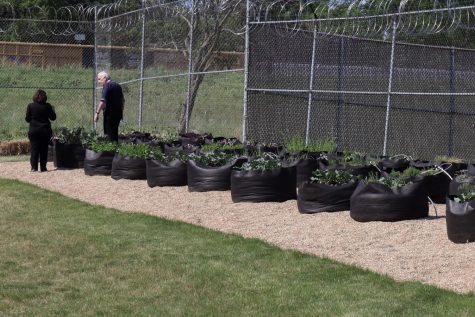
The normal class size is 20 inmates; however, the largest class size for the horticulture program is 16 because only groups of eight can be in the garden at a time. The class also requires the inmates to attend online lectures on Mondays. The inmates will go into a classroom and watch the lecture from a smart TV. Kollmeyer is co-teaching the lectures with COD Instructor Ellen Camp.
Beary said, “I see them out there in the garden and they’re smiling. They seem to really enjoy it. We house them all together in one pod for the duration of the program so they can help each other with homework and create a study group.”
Not only are the inmates excited to be a part of the class, but they are helping the community while they learn about horticulture. They have planted tomatoes, hot peppers, bell peppers, beans, squash, cucumbers, broccoli, kale, zucchini and even some herbs are being grown in the garden. All of the produce harvested is donated to local pantries, which will be approximately 3,000 pounds.
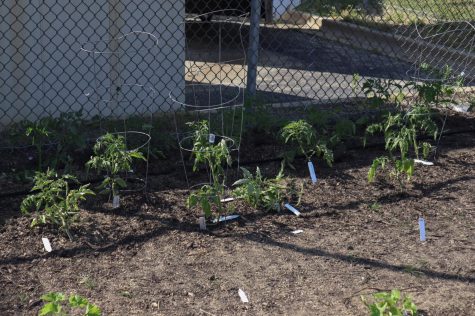
Recently, the greenhouse manager at Cantigny Park donated over 100 flowers. The flowers are helping bring pollinators to the garden, and they are donated to local women’s and children’s shelters. Inmate Jennifer Palmer hopes to go to school for agriculture and was excited to be picked to plant the flowers.
“I love it [working in the garden],” said Palmer. “This is my first day out here, so hopefully I will get to enjoy more time out here. I’m definitely going to apply for it [the Sustainable Urban Agriculture Program].”
An effort to interview a graduate of the program was made, but the request was not fulfilled.



